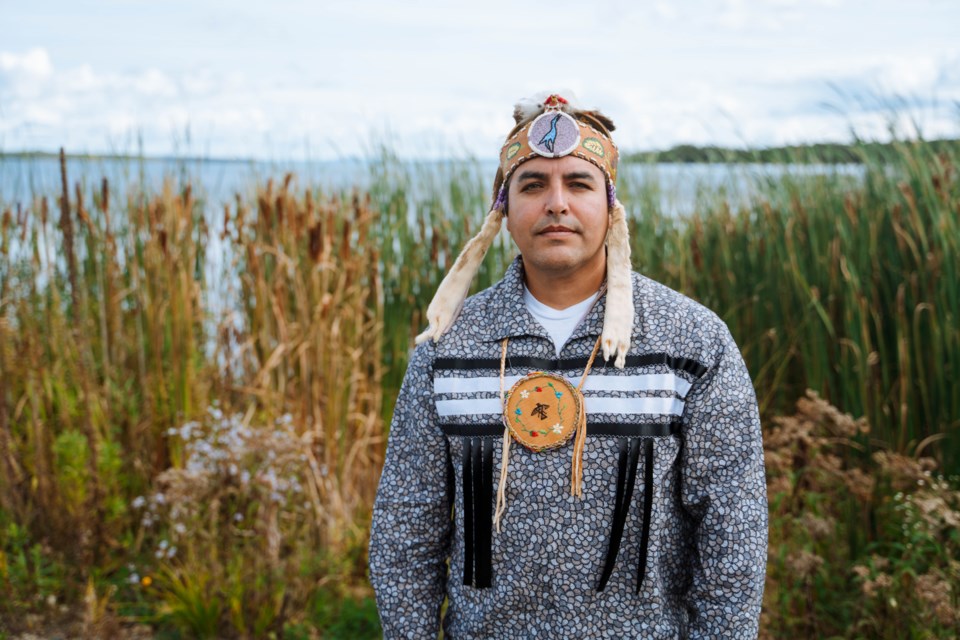Anishinabek Nation Grand Council Chief Reg Niganobe says he’s relieved following a Federal Court ruling late last month regarding funding agreements for three Indigenous police services.
The Anishinabek Police Service (APS), UCCM Anishnaabe Police Service and Treaty Three Police Service (T3PS) hadn’t received federal funding since March 31, which resulted in Anishinabek Nation, Grand Council Treaty Three and the United Chiefs and Councils of Mnidoo Mnising to all declared a state of emergency.
In a decision handed down on June 30, Federal Court Justice Denis Gascon ordered Public Safety Canada to extend funding for 12 months.
“While this is welcomed news, we continue to look forward to a time when First Nation police services are deemed essential by the government. We have always had peacemakers who were members of our society. First Nation policing services are vital to the safety of our communities and they need to be recognized and funded appropriately,” Grand Council Chief Reg Niganobe stated in a news release.
According to the release the most recent proposed policing agreements drafted by Public Safety Canada prohibited First Nation Policing Services from establishing specialized units, such as domestic assault, canine units and other major crime units.
“This does not align with the recently introduced legislation, United Nations Declaration on the Rights of Indigenous Peoples Act,” the news release added.
Read the full news release below:
Anishinabek Nation Grand Council Chief Reg Niganobe is relieved with the recent Federal Court ruling on a motion filed by First Nation Police Chiefs of Ontario regarding their funding agreements. The Federal Court has ordered funds to flow to the First Nation police services that were without funding since March 31, 2023, and were on the verge of ceasing operations.
“While this is welcomed news, we continue to look forward to a time when First Nation police services are deemed essential by the government. We have always had peacemakers who were members of our society. First Nation policing services are vital to the safety of our communities and they need to be recognized and funded appropriately,” states Grand Council Chief Reg Niganobe.
Canada has a fiduciary duty and a legal obligation to recognize and uphold the rights of First Nations and they also have the duty to act in the best interest of Indigenous communities. The Judge ruled that certain terms and conditions within the First Nations and Inuit Policing Program are discriminatory. This raises concerns about the government's commitment to reconciliation and its legal obligation of upholding this fiduciary duty.
In April 2023, Ontario First Nations Chiefs filed a human rights complaint with the Canadian Human Rights Tribunal to address the government’s chronic underfunding and inequitable policing agreements.
“We are here to support the efforts of First Nation police services and their ability to safely and adequately carry out their operations. We stand with Anishinabek Nation communities in their plight for equitable funding and insist that Canada must meet these fundamental basic rights to safeguard our citizens,” adds Lake Huron Regional Deputy Grand Council Chief Travis Boissoneau.
The most recent proposed policing agreements drafted by Public Safety Canada prohibited First Nation Policing Services from establishing specialized units such as domestic assault and other major crime units. Further, they were unable to challenge or amend these agreements. This does not align with the recently introduced legislation, United Nations Declaration on the Rights of Indigenous Peoples Act.
“We will continue to work with the federal government to ensure that agreements encompass principles of the UNDRIP Act so that these discriminatory practices come to an end and more equitable practices are set in place,” further states Grand Council Chief Reg Niganobe.
The Anishinabek Nation is a political advocate for 39 member First Nations across Ontario, representing approximately 65,000 citizens. The Anishinabek Nation is the oldest political organization in Ontario and can trace its roots back to the Confederacy of Three Fires, which existed long before European contact.
